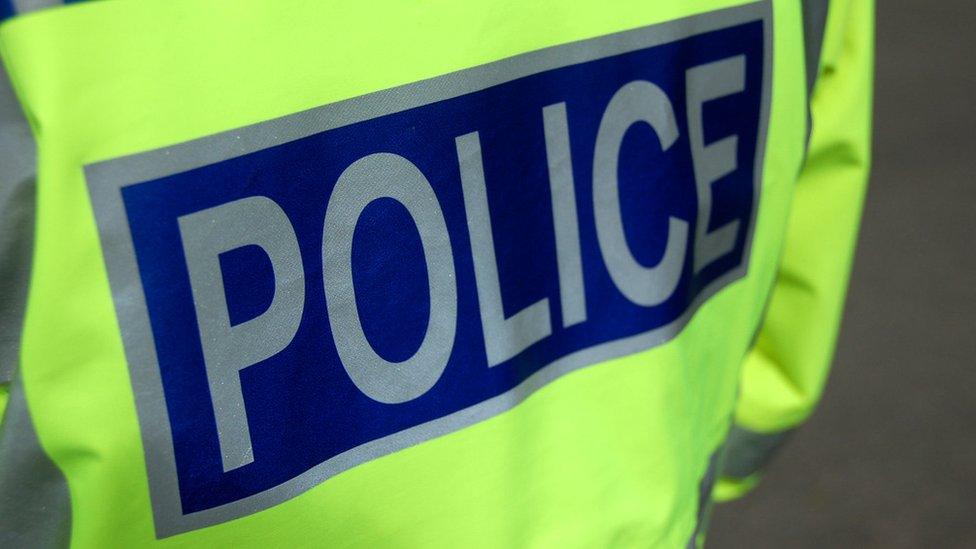Former Hill End Hospital residents upset by end of police investigation
- Published
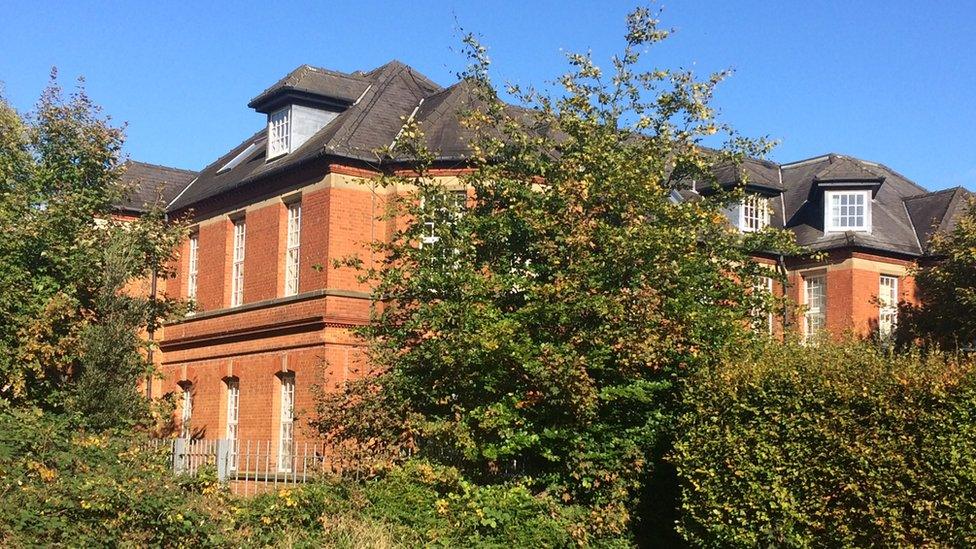
Hill End Hospital closed in 1995 and some buildings were turned into homes
A woman has called a decision to drop an inquiry into alleged abuse at a teen psychiatric unit in the '70s and '80s as "like a kick in the teeth".
She was one of more than 100 people who came forward in a three-year police inquiry into Hill End Hospital Adolescent Unit in St Albans.
It ended with no arrests due to "insufficient evidence".
The woman said if a civil case was brought, it "might help a little bit to know there was some sort of justice".
Hill End Hospital, on the outskirts of St Albans in Hertfordshire, operated from 1899 to 1995, caring for people with mental health problems. A housing estate was built on the site after it closed.
The 57-year-old woman from Biggleswade, who wishes to remain anonymous, was brought up in St Albans and ended up in the unit in 1977, aged 13, after being raped in her own home.
She spent about three months there despite not having psychiatric problems, because - she says - it was not known where else to put her.
She said what she experienced was "cruelty beyond belief".
Hertfordshire Police said its investigation found that "in some cases children were given adult doses" of sedative medication, but due to a lack of evidence it could not pursue it further.
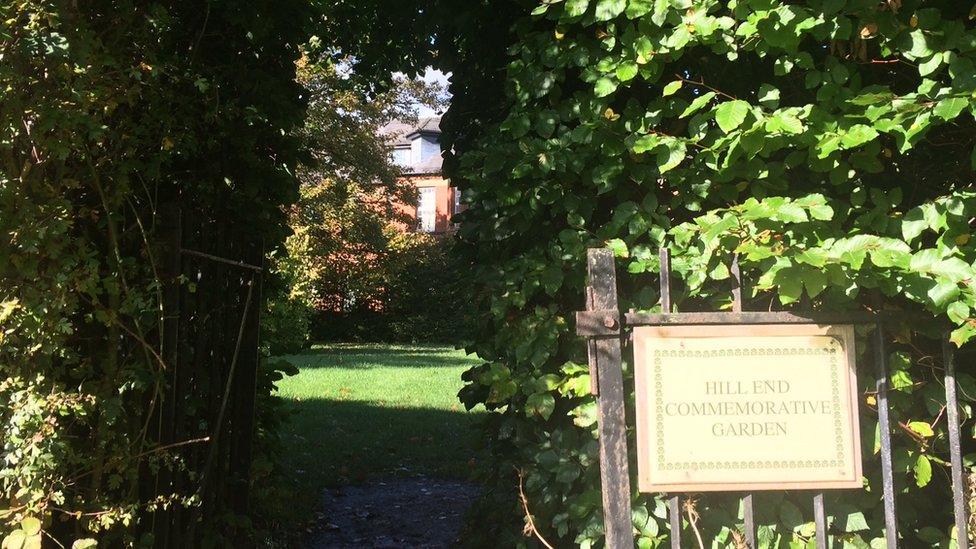
The Hill End Commemorative Garden on the site is described as a place where "former staff, patients and relatives can reflect on the life and times of Hill End and their part in it"
However, the former resident said the wrongdoings at the hospital were "way, way more than that".
"I got sedated because I wouldn't eat," she said. "I was painfully shy and didn't eat for the first week.
"Your knickers were pulled down and you were jabbed. You just dropped to the floor immediately. You couldn't move for two days."
She said it happened to people on a daily basis.
"It sounds unbelievable but it's true," she said. "I've never, ever got over it."
Hertfordshire Police said that since 2017 it had "fully investigated" reports of physical and sexual child abuse and the use of sedation on children at the unit between 1969 and 1995, and had spoken to more than 100 former patients and 70 ex-staff.
Despite finding the use of sedation "did not meet the standards of the day", it concluded there was "insufficient evidence" to support any prosecution and no arrests were made.
Solicitors are now pursuing a civil case.
The force said those who came forward had been "incredibly courageous" to talk to officers about their experiences and knew that it had "caused many to relive the trauma".
Det Supt Jerome Kent said he hoped they would "find some closure in the knowledge that they have been listened to, taken seriously, and a full and proper investigation has taken place".
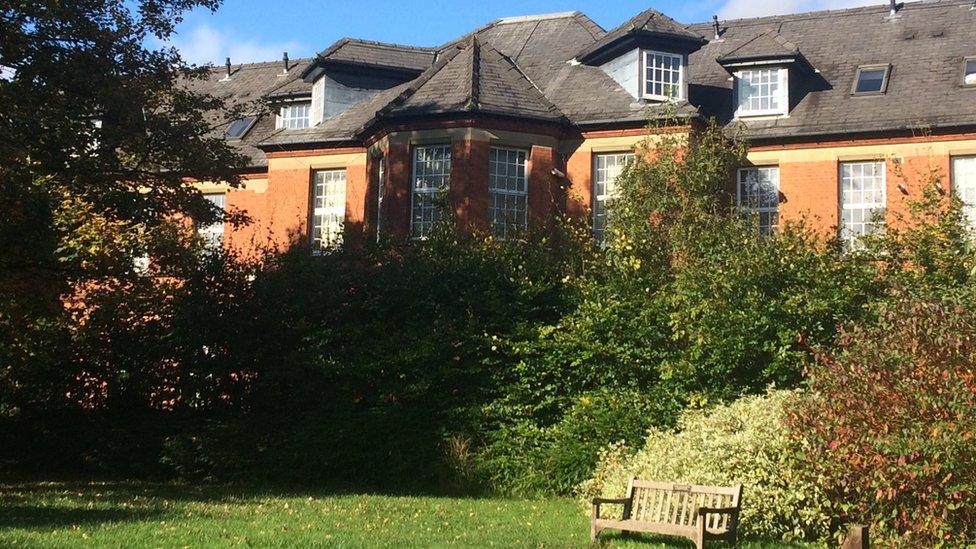
A former unit resident said "medication usually used on psychiatric patients was being used as a punishment"
But the former resident is not satisfied.
"It's heartbreaking," she said, "It's like a kick in the teeth all over again, I wish I'd never come forward.
"This [the inquiry] was like going through it all again.
"During the past three years I went to pieces. I lost my husband and my home because I hadn't told him - people don't understand.
"A civil case might give me a bit of quality of life. It would probably help a little bit to know there was some sort of justice."
Solicitor Emma Jones, from Leigh Day, which is representing 60 complainants, said while it was "disappointing" that police decided not to take things further, it was through the investigation that evidence was "uncovered that confirms that over sedation and using drugs to control children took place".
"I hope that the police statement that makes clear that use of sedation did not meet standards of the day helps my clients to feel that they have been believed," she said.
"This acknowledgment by the police provides evidence that the stories we have been told were accurate and based on truth."
'Dumping ground'
Another former resident, a 42-year-old man who was sent there in 1992, aged 14, said he hoped a civil case would help "draw a line" under it.
His time at the unit was also not due to mental health issues. He was sent there after family problems, arriving after a spell in a children's home did not resolve them.
"I think I was sent to the unit as a last resort," he said.
"It was basically a psychiatric home being misused as a dumping ground for people they didn't know what else to do with.
"And medication that was usually used on psychiatric patients was being used as a punishment."
He said he was never sedated himself but saw it happening to others.
"I was terrified in there and terrified into silence," he said. "I kind of zoned out my whole time there. I saw the sedation, I was watching it all."
He said he still had some residual issues as a result of the experience but "it's not treatable, I just live with it".
In some way the investigation did help him, he says, but he hopes a civil case will give public recognition to what happened.
"With the police investigation came the realisation that it was real, but I still feel like naughty boys aren't believed," he said.
"It would be nice to draw a line under it and for people to recognise what happened and for my mum to see it was serious. If I mention it, she talks about something else - even other family members think I'm either making it up or exaggerating.
"But I feel like I belong in normal life now, I'm believing it more every day, things are definitely looking up."
The hospital came under the jurisdiction of the new National Health Service in 1948 and was administered by the Mid Hertfordshire Group Hospital Management Committee until it came under the new Horizon Health Trust, which began winding it down in 1991.
Child and Adolescent Mental Health Services (CAMHS) in the area now come under the Hertfordshire Partnership University NHS Trust, external.
The BBC has contacted both the trust and the Department of Health and Social Care for comment.

Find BBC News: East of England on Facebook, external, Instagram, external and Twitter, external. If you have a story suggestion email eastofenglandnews@bbc.co.uk, external
- Published20 October 2020
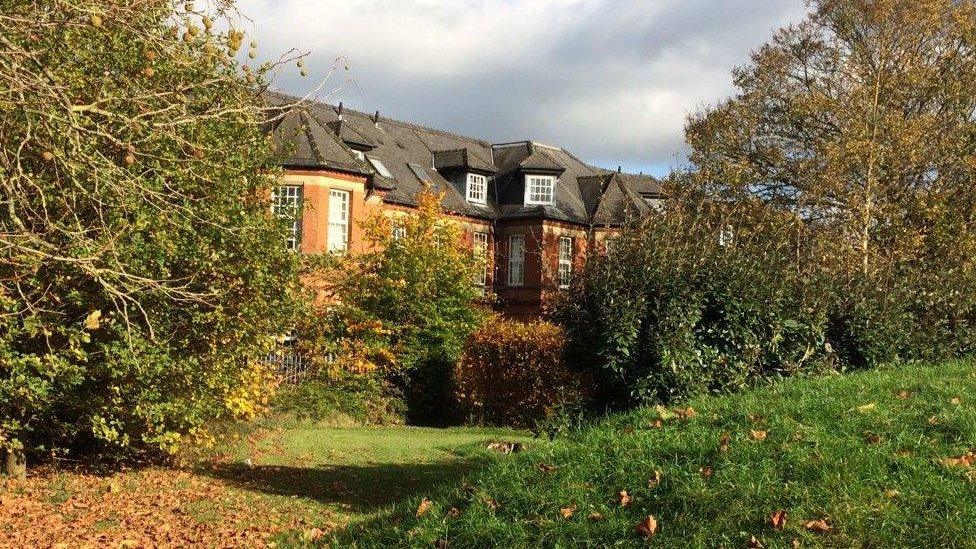
- Published6 June 2018

- Published10 February 2018
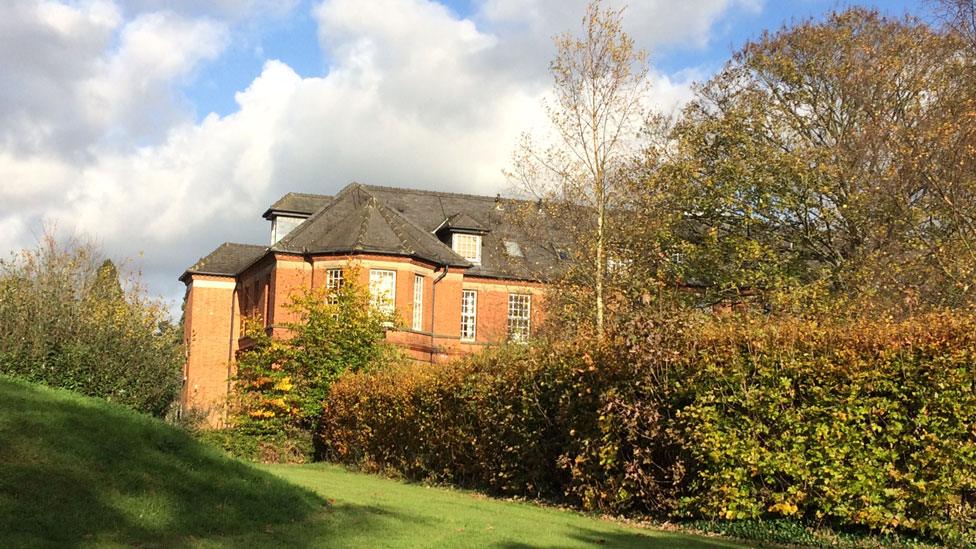
- Published9 November 2017
